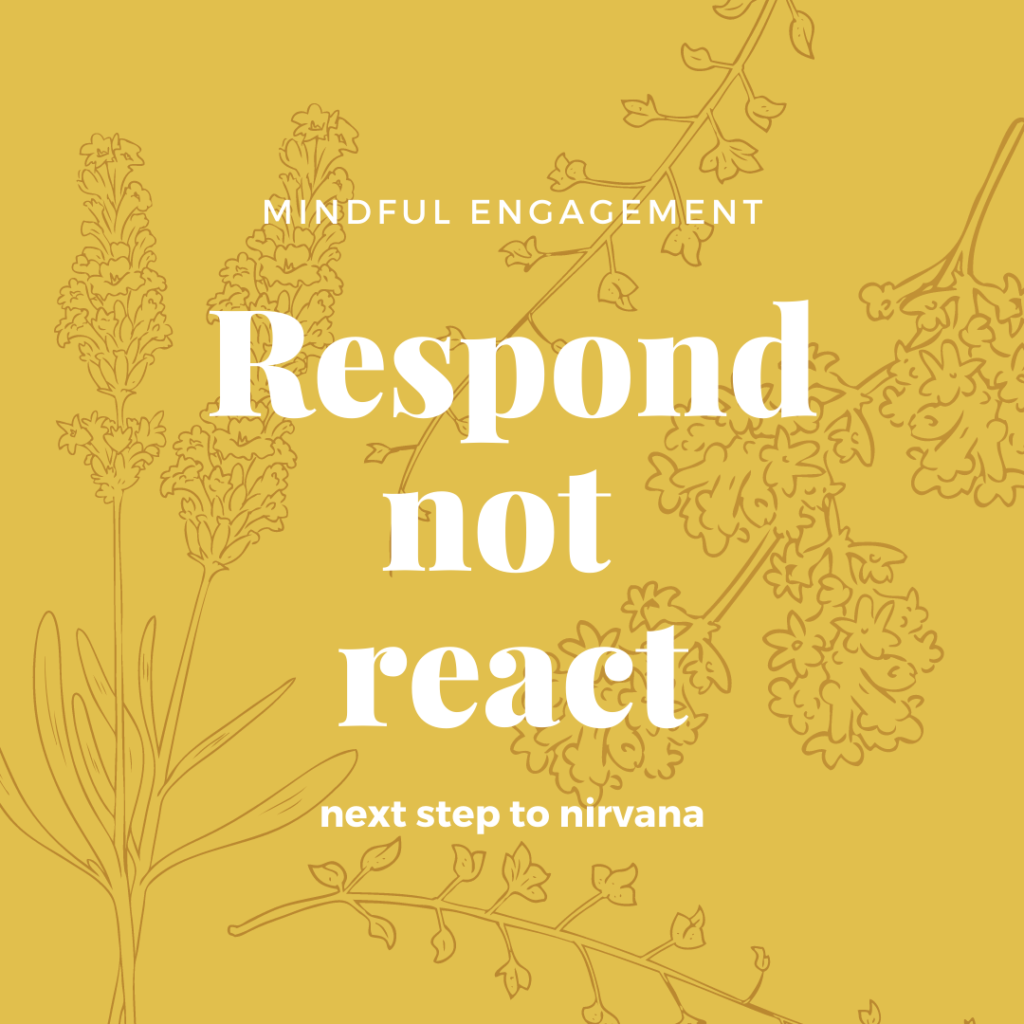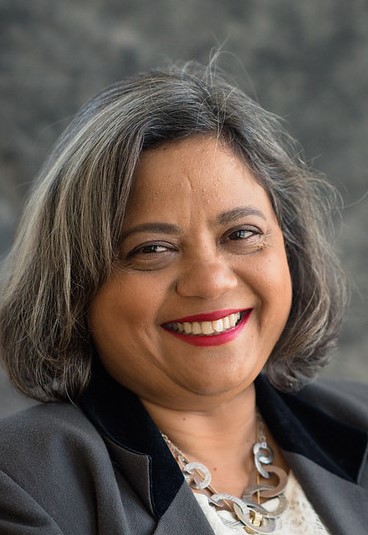
The present moment demands we invent new ways of being, doing, and relating with the world. Given the urgency of attention demanded by the arc of the moral universe, we cannot afford not to protect the world from our worst impulses and ensure that we do not exacerbate the fragility of the world we live in. To meet this moment, we need fresh, collective, inclusive, and interdependent models of leadership and new approaches to leadership development. Not just doing the same thing better but doing better things with our lives, resources, talents, and opportunities. In my mindfulness-based approaches to leadership development, the focus is to develop our capacities for expansive leadership.
Meditation and mindfulness practice nurture our ability to inhabit that space with power and agency. The ability to lead begins with the process of self-discovery, self-awareness, self-leadership, and discovering our connections to other people and the universe at large. The primary tenet is Respond not React.

Central to this framework is the practical mindfulness training which incorporates:
Intentionality: You own your body, mind, and spirit
In my teaching methodology, you own the process, the practice, the responsibility, the ownership, and your own agency. Dr. Richard Boyatzis has researched and advanced the intentional change theory of human change and development. As an individual invested in decolonizing my own mind, I respect your autonomy and your right over your body, your mind, and your spirit. I can paint a picture, provide guidance, and write a book. But personal growth and development must be intentional and owned by you, the reader, the learner, the change owner. You will be ready when you are ready; not a moment sooner.
Authenticity: Appropriate and Responsible
This practice invites authentic engagement from all of us. Authenticity in this framework is more about how you show up in your practice for yourself. That is not to be confused with inappropriate boundaries. I respect your need to know about me as a person, as a mindfulness teacher, consultant, and researcher. But I also expect you to respect my boundaries. I am not a celebrity. I am not a brand or company. I need to honor myself and my boundaries to honor other people. Likewise, I will respect your boundaries as a student, person, and leader. I seek responsible, appropriate, and responsible authenticity.
Prosocial Orientation: Social Mindfulness
Mindfulness is more commonly used in secular leadership development spaces in instrumental ways such as stress reduction and anxiety reduction, improving resilience etc. mostly towards being more productive in workplace contexts. This approach bypasses the spiritual intent to develop compassion, insight, critical inquiry towards an ethical life (dharma). This approach truncates our capacity for holistic development and lifts what Chogyam Trungpa Riponche terms spiritual materialism. Another challenge is that this hides the persistent structural inequities when individual experience is explored as if context is irrelevant. My practice is focused on exploring the relationship between self and society and systems and cultivate social mindfulness not just personal mindfulness.
Transformation: Self to Society
My approach to mindfulness is all about love. But love is not about rolling over and playing dead. Love is about standing up for our values and what is right. Like Gandhi’s satyagraha, which in its core is an active fight for truth, love and mindfulness is an act of liberation and enlightenment not just a tool like ‘treat yourself’ that feeds consumerism to quell resistance and serve profits. My approach facilitates learning how to explore your identities, transform our inner worlds and outer worlds to be more inter-related, expansive, kinder, compassionate, and just. My model is multi-faceted and takes a whole person approach including emotional, cognitive, embodied, experiential, moral, and spiritual realms with an explicit goal to facilitate a more interconnected sense of self and expansive mindsets.
Service: Who we serve
Like the Bodhisattva who delay their own salvation out of compassion for others, a good leader transcends their personal egocentricism and occasionally even their tribal centrism. Mindfulness and meditation practice grounds us in the shared human condition – capacity for greatness, altruism, and prosocial mindfulness simultaneously co-existing with egocentricism, fear, anxiety, and the impulse to dehumanize the other. The practice allows us to own our greatness while being brave enough to face the worst of ourselves.
Foundation to this work is practice. No amount of reading will make up for experience. Being mindful and cultivating mindfulness is accessible to all of us. That is the paradox. There is no there-there.
Check out my completely FREE guided meditation resources.

My research, practice, and teaching is centered on radical change for a better world – both outer and inner worlds. Radical change involves challenging the taken-for-granted fundamental assumptions about our mental models, organizational priorities and social systems. I use mindfulness and contemplative engagement as a methodology for generative change. I am a professor at the New School in New York City.

Be First to Comment